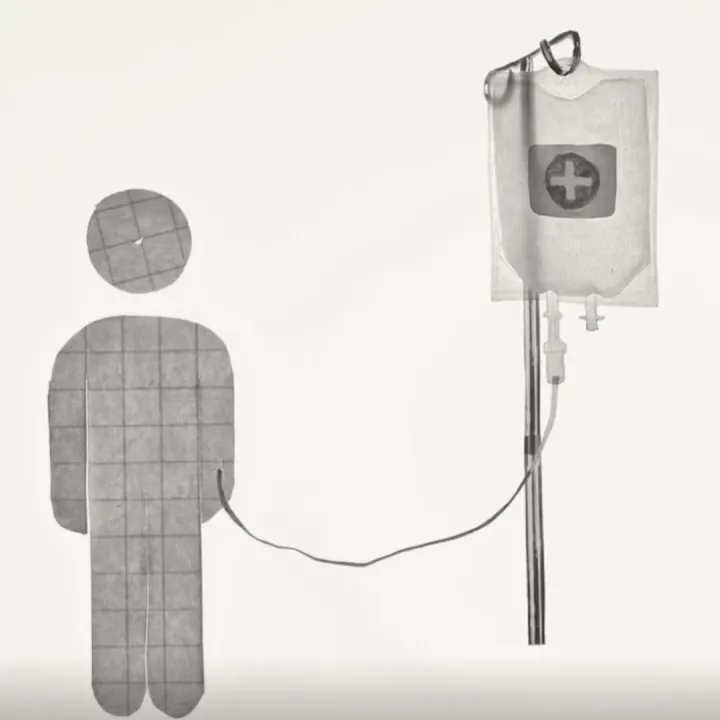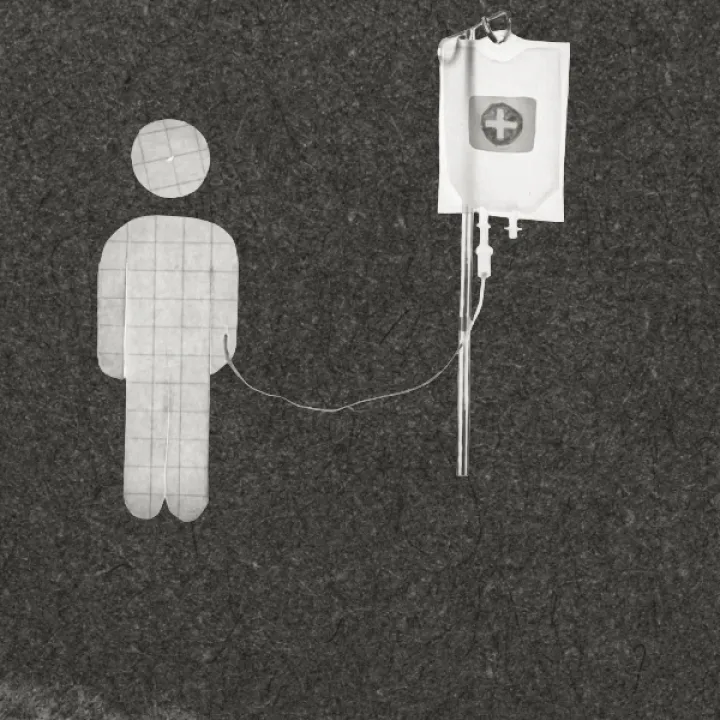Broadly speaking, an ‘unproven therapy’ is one which has not received full regulatory approval for a specific use. The term covers investigational therapies, which are being assessed for safety and efficacy, unregulated therapies, which have not gone through this process, and compassionate use, a rare case where a therapy is made available to specific patients before it has completed the approvals process.
What is an unproven therapy?
Investigational therapies are usually offered in the context of clinical trials. This means that information about the safety and efficacy of the drug is still being assessed. Therapies being trialled in humans have already shown promise in animal trials. The proposed study must be approved by at least one research ethics committee before participants can be recruited. Participants are closely monitored, and researchers are required to report any unexpected adverse events to the research ethics committee and other regulatory bodies. If a therapy is shown not to be effective, or to carry an unjustifiable level of risk, the trial will be terminated. You can read about the clinical trials process in more detail here.
‘Compassionate use’ is a special case in which an investigational therapy is used to treat a condition for which it is not yet authorised. This case exists so that therapies which are under development can be made available to patients living with a disorder which has no suitable, approved therapy, and who cannot enter clinical trials. It applies only to conditions which are life-threatening, long-lasting or seriously debilitating, and only to therapies which have entered the clinical trials process. The European Medicine Agency’s guidance on compassionate use can be found here. This guidance is not legally binding, and the law around compassionate use varies by country.
Unregulated therapies are therapies which have not gone through the process of clinical trials, and for which no clinical trials are ongoing or planned. Manufacturers and practitioners have not proven to any regulatory body that the therapy is supported by scientific evidence, and do not report responsible on the outcomes of their use. This can be through taking advantage of loopholes, providing incomplete or misleading data, or continuing to offer a therapy while failing to meet regulatory standards. These therapies are often offered by private clinics rather than public health providers, and may be advertised as ‘experimental treatments’. It is important to note that while in some cases these services are offered legally, they do not benefit from the same safeguarding measures as regulated, investigational treatments.
A note on terminology: in media discussions, and in day-to-day conversations, the terms unregulated, unproven, investigational and experimental are often used interchangeably. Throughout this website, ‘investigational’ is used to refer to therapies which are currently going through the clinical trials process, but are not yet approved for routine clinical use; ‘unregulated’ will refer to therapies which are not complying with the appropriate regulatory bodies, and which are not supported by published scientific evidence. For clarity, the umbrella term ‘unproven’, and potentially unclear term ‘experimental’, will be avoided where possible. If you are uncertain about the basis for a therapy you are being offered, ask a trusted, qualified healthcare provider about the supporting evidence.
How do unregulated therapies reach the clinic?
Clinical trials are an essential step in the process of developing new therapies, and researchers and healthcare providers have a duty of care to safeguard the wellbeing of individuals participating in their trial or receiving a non-approved therapy while under their clinical care. Unfortunately, some organisations will exploit the ambiguity around the idea of ‘unproven’ or ‘experimental’ treatments, and offer patients unregulated treatments which have no scientific grounding. This can mean that:
- The therapy was approved for a Phase 1 clinical trial, and although it has not met the criteria for progressing to Phase 2, the organisation continues to recruit participants for phase 1 without modifying the process.
- There is a lack of agreement within the scientific and medical community as to the efficacy and safety of an unapproved therapy (due to a disease being rare, or to different studies using different methods), and organisations ‘cherry-pick’ findings which support their use of a therapy. Different countries in Europe have different regulatory bodies, and the differences in regulation may be downplayed or minimised to support the use of a therapy in another context.
- No clinical trials have been conducted for this therapy. These procedures can be offered legally by exploiting a legal loophole or technicality. For example, in some regions therapies classed as ‘cosmetic’ are subject to different regulations and oversight than products classed as ‘therapeutic’. Organisations may offer a therapy classed as cosmetic while using misleading language to imply that it has therapeutic benefits.
All therapies, however well-monitored and well-regulated, carry a certain amount of risk. However, patients should be especially cautious of therapies which are not subject to the usual safety and ethical requirements.
Clinics offering unregulated therapies will often offer patient testimonials about the success of the procedure, rather than externally reviewed evidence. It is certainly possible for patients to benefit from unregulated treatments, whether due to the placebo effect or genuine, unstudied effects. They may also experience adverse effects. This can be particularly dangerous if these effects have not been studied, and are poorly understood. Another possible outcome is that the procedure will have no appreciable effect whatsoever. The provision of unregulated treatments can delay patients in seeking care which is more likely to benefit them, during which time their condition may progress.
What are the risks associated with unregulated therapies?
The goal of the clinical trials process is to ensure that a therapy is safe for use in patients, and that it is fit for purpose – that is, that it can be shown to improve a patient’s quality of life. Unregulated therapies do not benefit from the same oversight and safeguarding that as correctly regulated investigational therapies.
Practitioners offering unregulated treatment may not be providing any regulatory body with scientific proof that the therapy will work – either by taking advantage of a loophole which means they are not required to, or by violating regulatory requirements. Because of this lack of oversight, the relevant authorities will not be informed if they discover unexpected, serious safety issues, or if it turns out that the therapy is not effective at alleviating symptoms or improving quality of life.
Unregulated therapies are not necessarily required to undergo ethical review, or may use regulatory loopholes to avoid it. Many effective therapies will have undesirable side effects, or cause disruptions to the life of the patients and their carers. One of the tasks of the ethics committee is to balance the potential benefits against potential negative outcomes, and to decide whether the risks and side effects are proportionate to the potential benefits. Unforeseen adverse events or side-effects are reported to the committee, which then gives its advice as to whether an investigational therapy should be halted for the good of the patient.
Without regulatory and ethical oversight, these decisions are at the discretion of the individual practitioner or clinic. Clinics do not have to report or publish their findings. This means it is difficult for the scientific community to assess their findings, and confirm whether they can be replicated. It also makes it challenging for patients and carers to find impartial information about the safety or success rate of a therapy they may be considering.
Travelling to access medical care
Not all health services are equipped to deal with rare diseases, and not all therapies approved by the EMA are widely available in all EU countries. Patients may therefore consider travelling outside their country of residence for treatment.
European Reference Networks
A patient with a rare or complex disease may struggle to find a healthcare provider with relevant clinical expertise. To address this, the EU created European Reference Networks (ERN) in 2017. These are networks of institutions and healthcare providers. They are organised across borders, facilitate the sharing of knowledge, resources and expertise throughout the EU. The goal is to lead to improved care for people living with rare disorders.
Under a 2011 EU directive, EU citizens are entitled in certain cases to travel to other EU countries for medical care and reimbursement. ERN are encompassed by this directive. Your healthcare provider will be able to discuss with you whether travelling for treatment is an option in your case, and what it will mean logistically for your future care if you do. The decision will be informed by the expertise of the ERN, but ultimately will be made between you and your clinician.
Other travel for treatment
If you are travelling to take part in a clinical trial in another country, to receive an unapproved/unregulated therapy, or to receive a therapy which is approved in another jurisdiction – for example, travelling to the United States of America for a therapy approved by the FDA (Food and Drug Administration) but not by the European Medicines Agency – we recommend that you discuss this decision with your local consultant. It is important that you know what follow-up care you will be entitled to in your own country. It is also important for your healthcare that your consultant is informed of any other treatments you are receiving, so that they can give you the most appropriate care possible.
'Off-label' therapies
‘Off-label’ use refers to the practise of using a therapy which has been authorised for a specific purpose to treat a different issue, or administering it using a non-authorised method. For example, beta-blockers, a drug authorised to treat high blood pressure, is commonly prescribed to treat anxiety, for which it is not specifically authorised. Off-label use is not considered a form of unregulated therapy, as the safety and efficacy of the therapy has been established in clinical trials, and its use authorised by the relevant regulatory bodies.
A drug can be prescribed off-label as part of a patient’s treatment at the discretion of the prescribing physician. Some products may be commonly used off-label for a long time before this use is investigated through a formal clinical trial. These off-label uses may therefore be supported by scientific evidence (such as case reports from a particular clinic) even though clinical trials are not underway for this purpose. If you have any concerns about being offered a product for an off-label use, you should raise this with a trusted member of your healthcare team.


